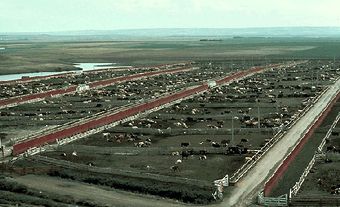New Brunswick Research and Productivity Council
The New Brunswick Research and Productivity Council, a research and development organization, was established in 1962 by a provincial Act as a CROWN CORPORATION.
The RPC initially encouraged university-based research in industrial and scientific technology through grants-in-aid. This phase ended in 1965 when RPC staff moved into a permanent office and laboratory facility, and commenced research activities for provincial, other Canadian, and international industrial and government clients on a fee-for-service basis.
In 1975, a nondestructive testing and physical metallurgy section was established to meet technological requirements for the New Brunswick Electric Power Commission's Point Lepreau nuclear project.
In 1984, a demonstration centre for computer-aided design and computer-aided manufacturing was established to provide a high level of technical support to NB industry.
In 1991, the RPC opened the doors of a new laboratory facility that houses activities in chemical analysis, pest management technology, food product development, food processing and fish health research.
Today, the RPC continues to undertake contract research and development and provides specialized technical services for clients in NB, elsewhere in Canada and abroad. RPC staff have played an integral role in the growth of New Brunswick industries and have gained an international reputation for expertise in metallurgy, food science, analytical testing, process development and natural resource protection.
The RPC's 13 000-square-metre technology centre in Fredericton contains chemical, food, mechanical engineering and electronics laboratories; a machine shop; pilot plants for product and process development; a fish quarantine unit; and a technical information centre. Two-thirds of the RPC's staff of 110 are scientists, engineers and technologists.

 Share on Facebook
Share on Facebook Share on X
Share on X Share by Email
Share by Email Share on Google Classroom
Share on Google Classroom

